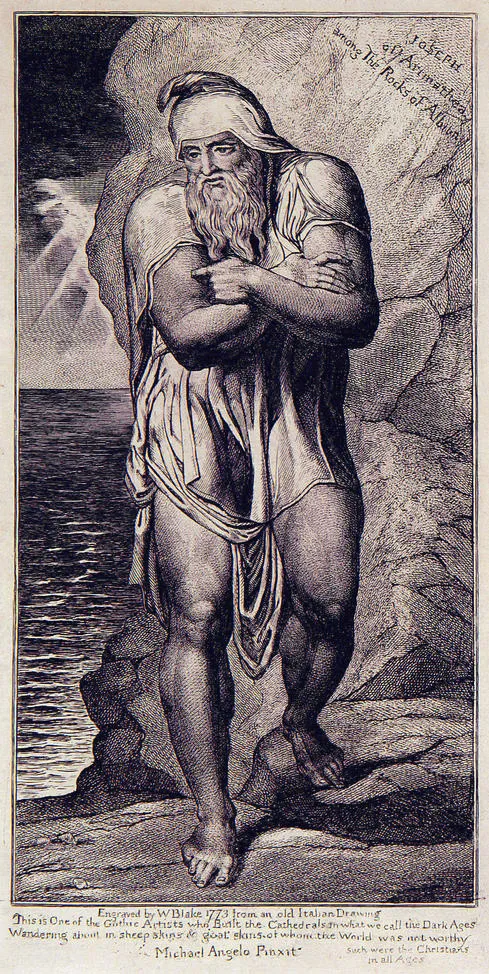William Blake versus England
If you've not read John Higgs' excellent book William Blake Vs The World, it's definitely worth your time1.
Higgs gives an entertaining overview of the 19th century poet, artist, and visionary whom nowadays might be thought of as a ruddy-bloody gawd-love-'im proper English gent.
You know, William Blake! The writer of Jerusalem, that unofficial national anthem solemnly sung during the Proms and memorial services and at every CofE event going, the 'England's green and pleasant land' song.
He might be thought of that way but it's entirely incorrect. Higgs hammers home that Blake's not all that positive about England at all.
You might now be thinking:
"But Jerusalem is about 'England's green and pleasant land'!"
Sure is. It talks about England's 'pleasant pastures' too, but then it quickly mentions England's 'clouded hills' and its 'dark Satanic Mills'.
Read it without the pomp and the church organ and it's clear that England isn't currently the New Jerusalem or the new paradise:
I will not cease from Mental Fight,
Nor shall my Sword sleep in my hand:
Till we have built Jerusalem,
In Englands green & pleasant Land.
Blake is saying he won't stop until Jerusalem is built. England has these horrible dark mills of Satan amongst some nice bits, so don't go thinking this is paradise yet. We've got work to do before that happens.
"Hmm, anything else?"
Plenty, but let's take one more example - Blake's etching of 'Joseph of Arimathea Among the Rocks of Albion' first produced in 1773:

This is Joseph, husband of Mary and sort-of father to Jesus in loco parentis2. Around the time this etching was made there was a well-known story popularised by John Milton that Joseph travelled to England after Jesus' death and spent time at Glastonbury preaching to the native Britons.
Blake's image shows Joseph first arriving in England before the preaching began. Joseph is Adonis-like - a tribute to such an important Biblical figure - but he's arrived at a desolate and dark place in rags.
He's huddled, as if cold.
The sky is black and there's a suggestion of a storm.
England, in the title of the piece by artist himself, is a place of rocks.
If William Blake truly loved England, where are the green fields and the throngs of adoring people beneath a gentle blue sky?
And where were Blake's throngs of adoring people, for that matter? And where are they today?
In his day he was roundly ignored. He worked out of a tiny studio above an engraving shop he owned, putting on his own poorly attended exhibitions because no-one in respectable society would show his work.
Nowadays Jerusalem is burped out at any formal celebration of Britishness as a misunderstood celebration of England when it's really a call to put in the work to do better. But beyond those eight lines of poetry Blake is still not really known at all.
He really should be.
He really should be known as someone who suffered the tremendous highs and lows of mental health issues, who described vivid hallucinatory 'visions' in his work, who created a whole mythology of angels and devils rivalling anything that Tolkien might have done, and who died still consumed with the work of understanding humanity's place in a world created by a Christian god.
If your interest is piqued, I encourage you to learn more.
After writing this post I struck around a while for a title. I didn't want a clickbaity one like "You don't know who William Blake is" or "Everything you thought you knew about William Blake was wrong". I also didn't want my generic "The William Blake post" placeholder. My argument in this post is about the misconception of Blake as being a super-patriotic Englishman, so I ended up cadging Higgs' title and bastardising it a bit. It's also a reflection that my thoughts are a very partial summation of Higgs' argument that Blake crafted his own space and felt at odds with the world. In short: read Higgs' book because it's very good.↩
This might be blasphemy.↩